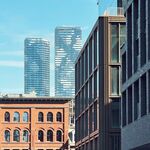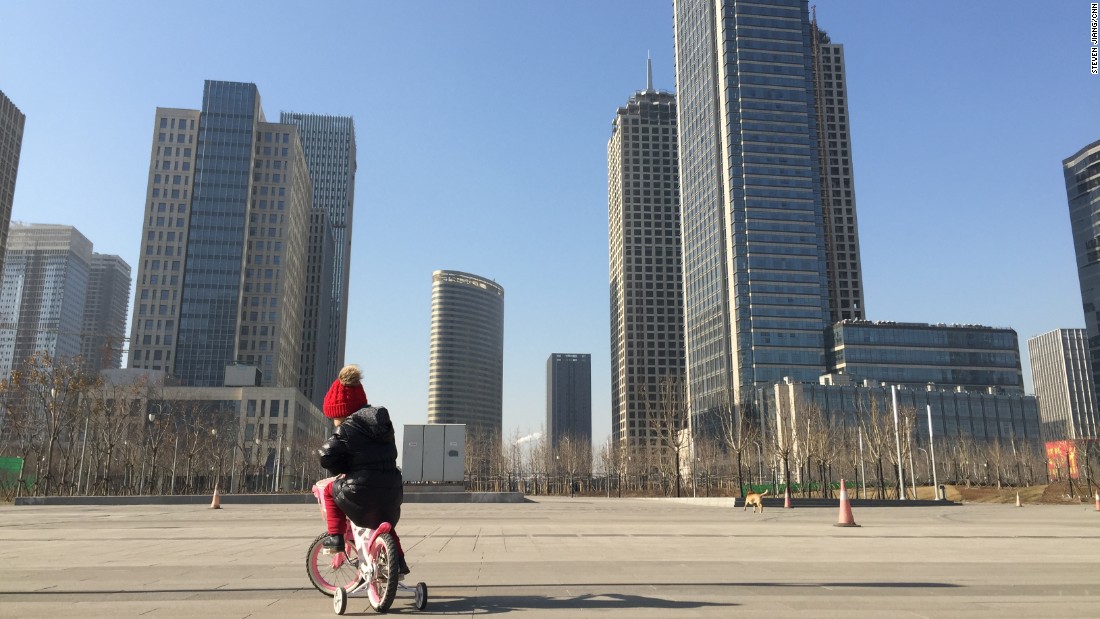While Canadians complain about inflated real estate prices, try buying a home in Shanghai.
A two-bedroom unit in “Wonderful Place,” a complex of highrise towers in the city’s northeast, has no closets, a galley kitchen, a minuscule balcony crammed with clothing racks and an extra fridge in the living room. While the grounds boast trimmed lawns and burbling fountains — the area is marketed as a “21st-century eco-friendly knowledge-oriented garden district” — the home is run-of-the-mill. But the cost is not. It is listed for $2 million (Canadian).
A shabbier 400-square-foot apartment in a building nearby goes for $1.6-million. Parking is $60,000 extra.
“We don’t have a lot of vacancies,” a real estate agent for this area, New Jiangwan City, tells a Star reporter.
The real estate bubble in one of China’s richest cities is so frenzied the average price for new homes rose by 30 per cent in the first three quarters of 2016. In Beijing and Shenzhen, the housing markets have increased by a similar amount, making them among the most expensive cities in the world to buy a home.
The Shanghai government has tried to cool the housing market, making it more difficult for existing property owners to buy another home, and increasing down payment requirements.
“Real estate in China is just crazy,” says Bo Chen, a 39-year-old economist at Huazhong University of Science and Technology in Shanghai. “People have money and they want to put it somewhere.”
For many, somewhere means Canada.
Vancouver became such a popular destination for Chinese buyers that it prompted a vocal and controversial backlash this summer. In July, British Columbia announced a 15-per-cent tax for foreigners buying homes in Vancouver, while Ottawa introduced new regulations preventing buyers from improperly claiming a primary-residence deduction.
However, this is may not dampen Chinese appetite for Canadian real estate.
“Property is the preferred asset class for Chinese people,” explains Matthew Moore, North America president at
Juwai.com, a property search engine that lists real estate around the world for Chinese buyers. “Only 15 per cent participate in the stock market.”
Growing concerns about the government’s recent devaluation of the yuan, as well as the 2015 collapse of the stock market, has also led to an explosion of interest in overseas property.
Chinese are the fastest-growing segment of global property buyers and favour homes in dollar-denominated currencies, Moore says in a phone interview from Hong Kong, where he is based.
Canada is the No. 3 choice for such buyers, behind the United States and Australia.
For many Chinese, buying a house overseas is seen as a crucial investment in the next generation.
Take the example of a Shanghai high-tech executive who recently relocated his wife and 10-year-old daughter to a 6,000-square-foot home in Surrey, B.C. He commutes monthly back to Shanghai, and says the sacrifice is worth it because he wants his daughter to have a western education.
“In China, she studied for three hours a day and had no time for play dates or sports,” says the executive, who asked not to be named to protect his family’s privacy. “This way she will be well prepared to get into a western university.”
“I also feel safer putting my treasure outside China,” he adds.
Bo does not believe Chinese buyers will be dissuaded by Canada’s new regulations because most are not looking for a quick return on their investment.
While many critics in Canada blame Chinese buyers for driving up housing prices, a new report from the Canada Mortgage and Housing Corp. concluded it is unclear how much impact they are actually having on prices in the Vancouver area, where the benchmark price for single family detached homes rose by 70 per cent in three years.
Low interest rates, robust population growth and limited housing supply are also inflating Vancouver’s real estate market, noted the study.
Between five per cent and 10 per cent of greater Vancouver real estate transactions are estimated to go to foreign nationals.
In Toronto, which has more global buyers than Vancouver, there has not been the same degree of outcry blaming Chinese buyers for property price rises.
Toronto recently overtook Vancouver as the top city in Canada for Chinese buyers, according to Juwai.com.
The number of inquiries about Toronto was up 85 per cent in September compared with last September, says Moore.
Lu, a 50-year-old executive at a state-owned Shanghai media company, plans to buy a condo in Toronto this spring, where his son will live while he attends the University of Toronto.
“Do you think I can get a place for $1 million that is walking distance from the downtown campus?” asks Lu. “I made a lot of sacrifices saving money for a house for my son. It is that important to me.”
Lu requested his real name not be used because officially the Chinese government permits citizens to move just $50,000 outside the country every year. People get around such restrictions by using underground banking services or getting family members and relatives to help.
As for Bo, he isn’t yet eying the Canadian market. While he paid just under $2 million a year ago for his three-bedroom unit in Wonderful Place, it has already appreciated by 50 per cent.
He knows that should he decide to move to Canada, his money will go even farther.





